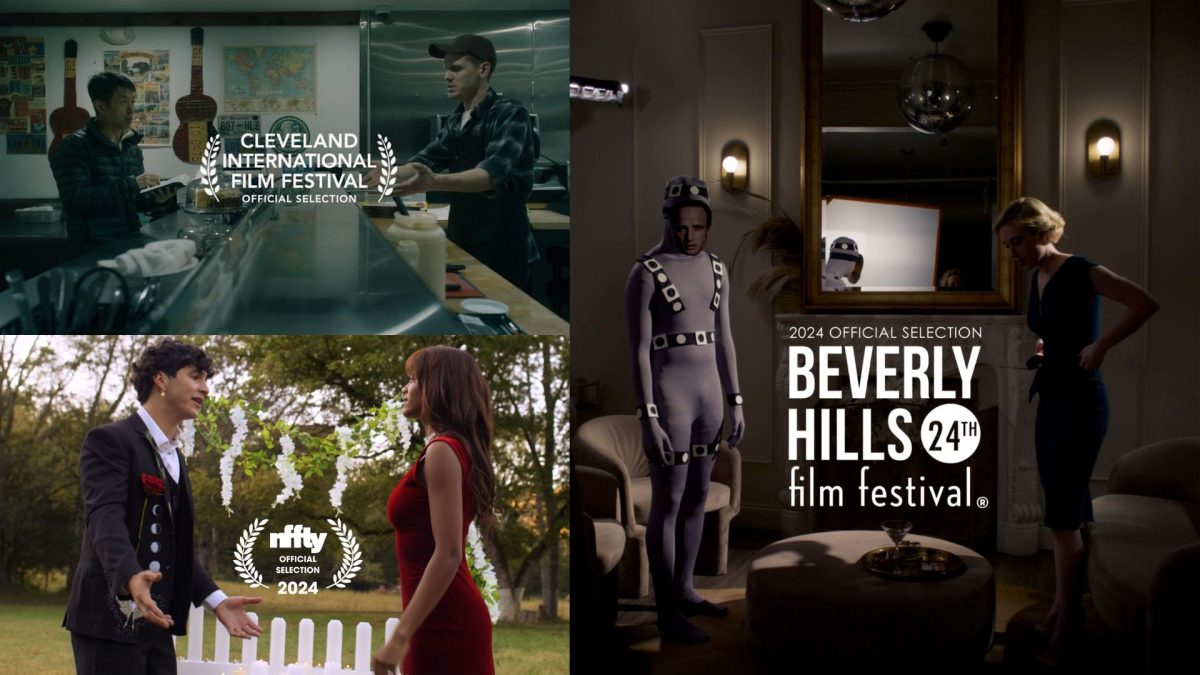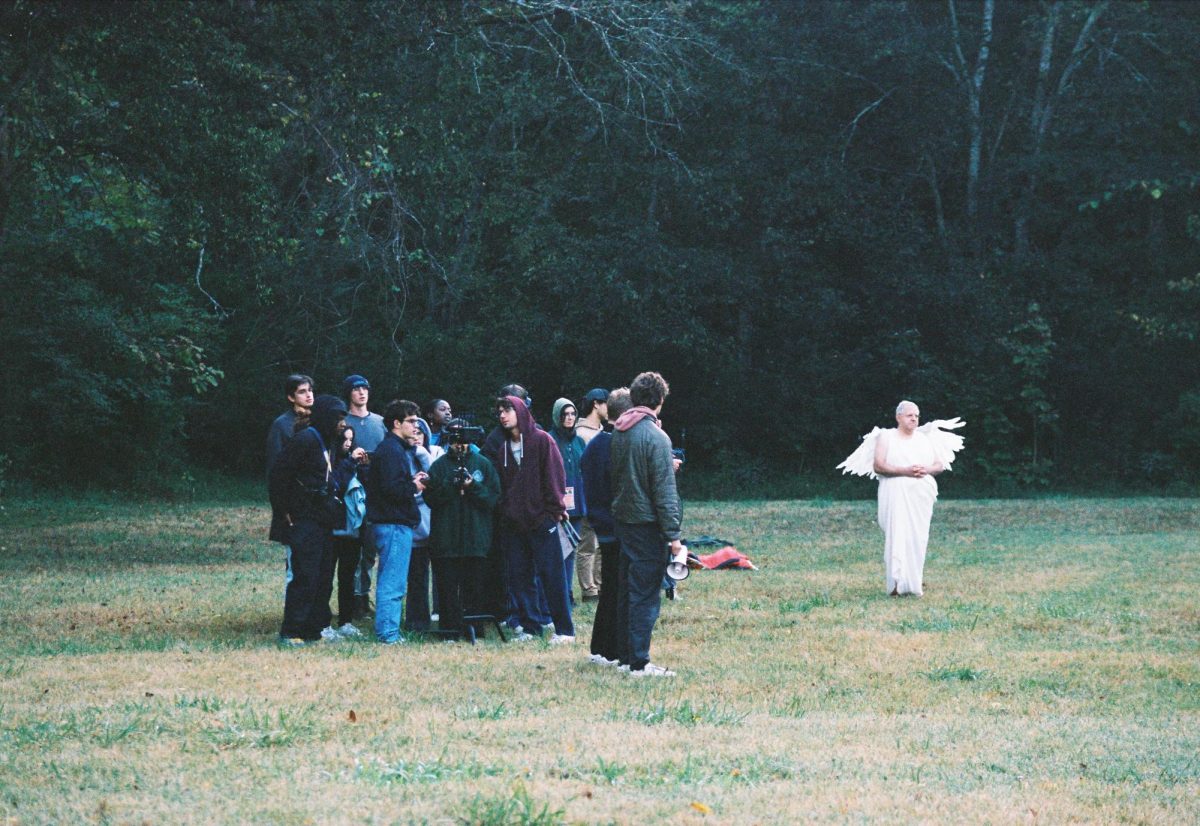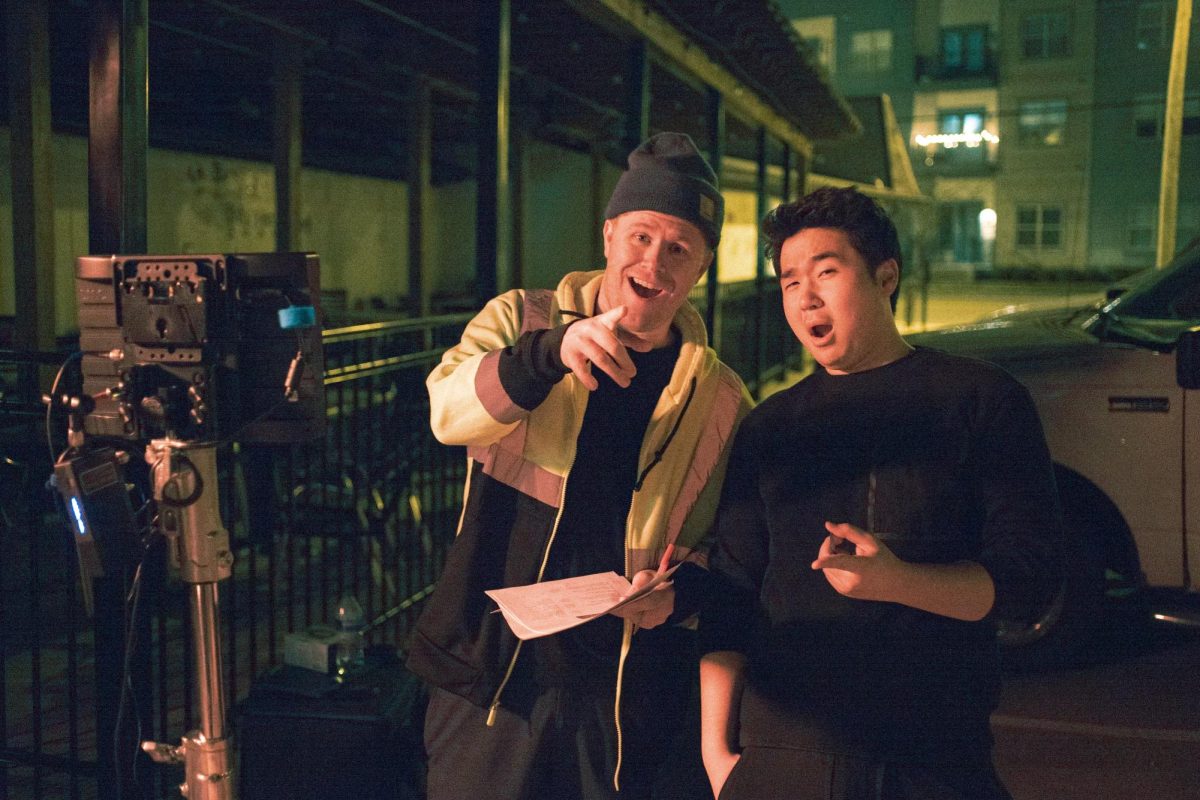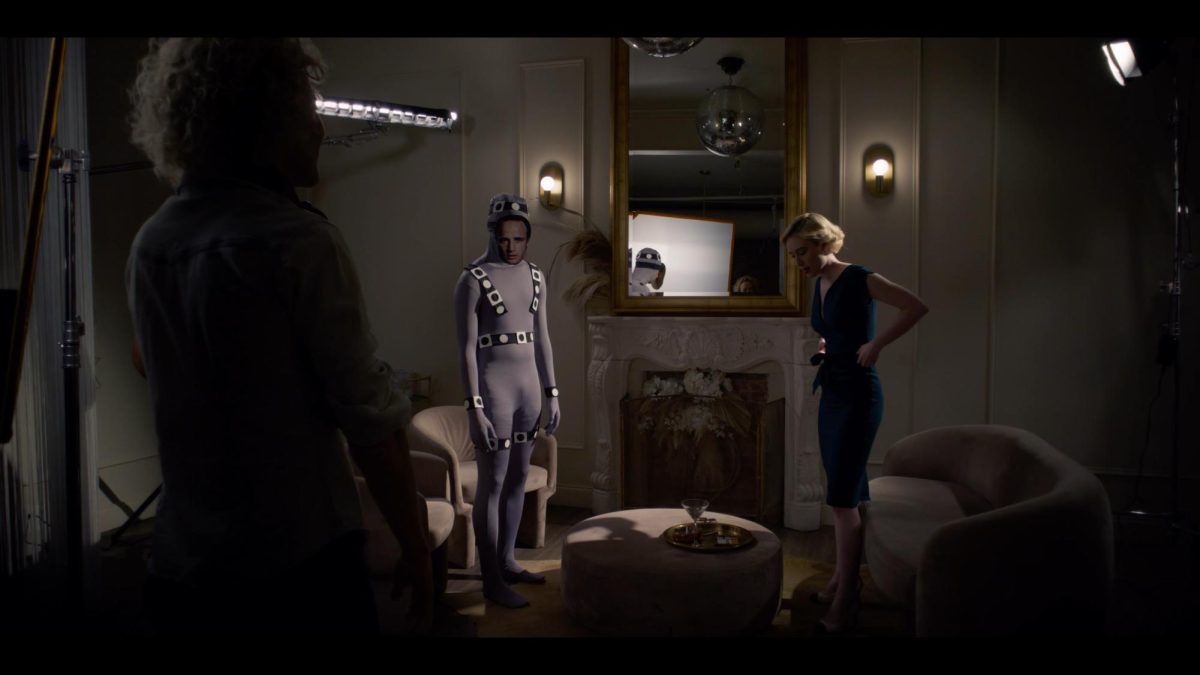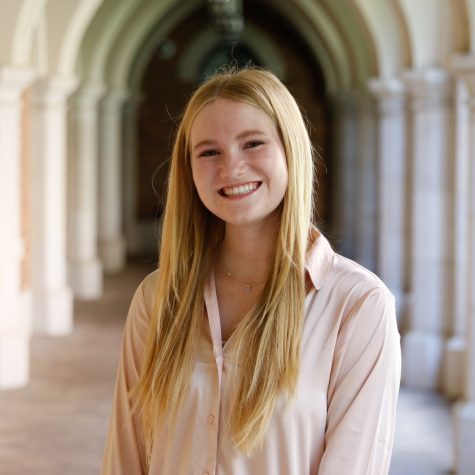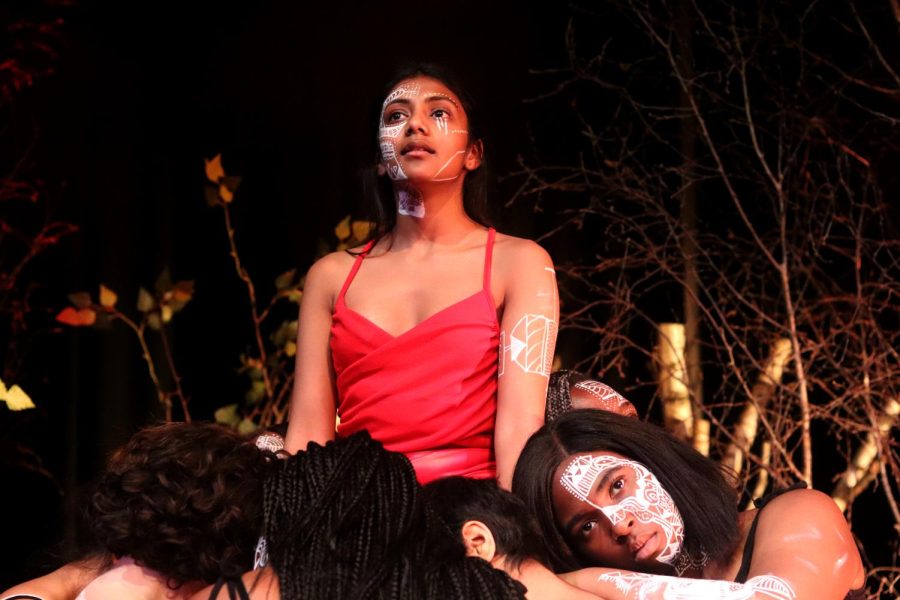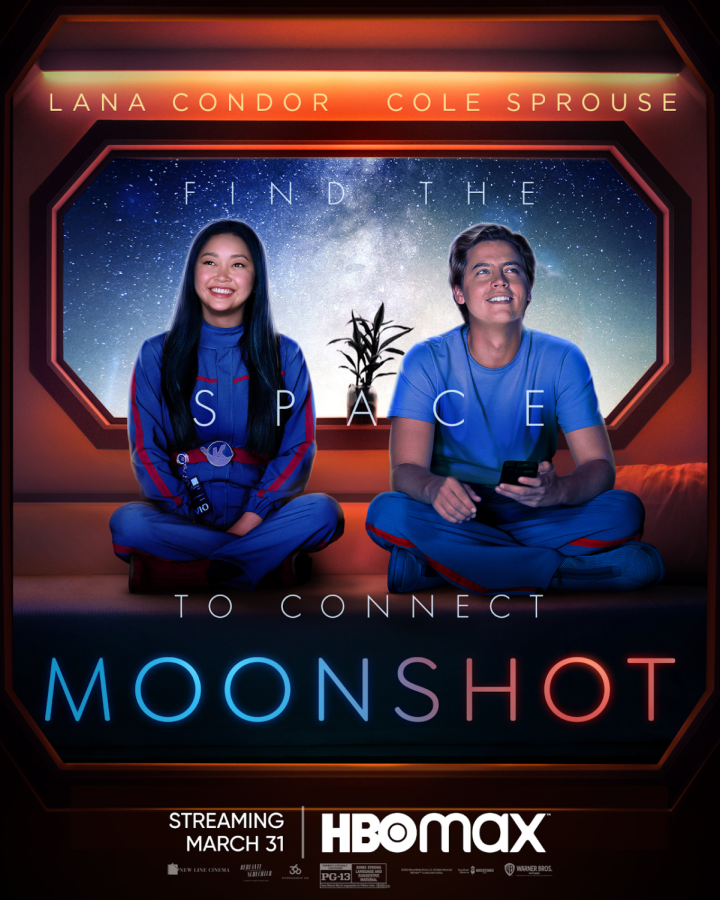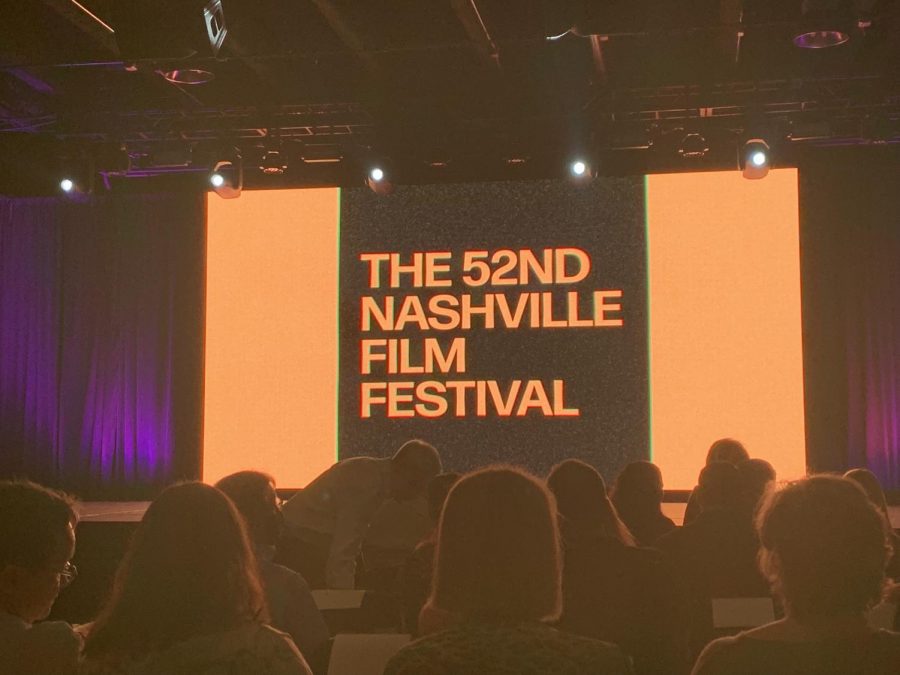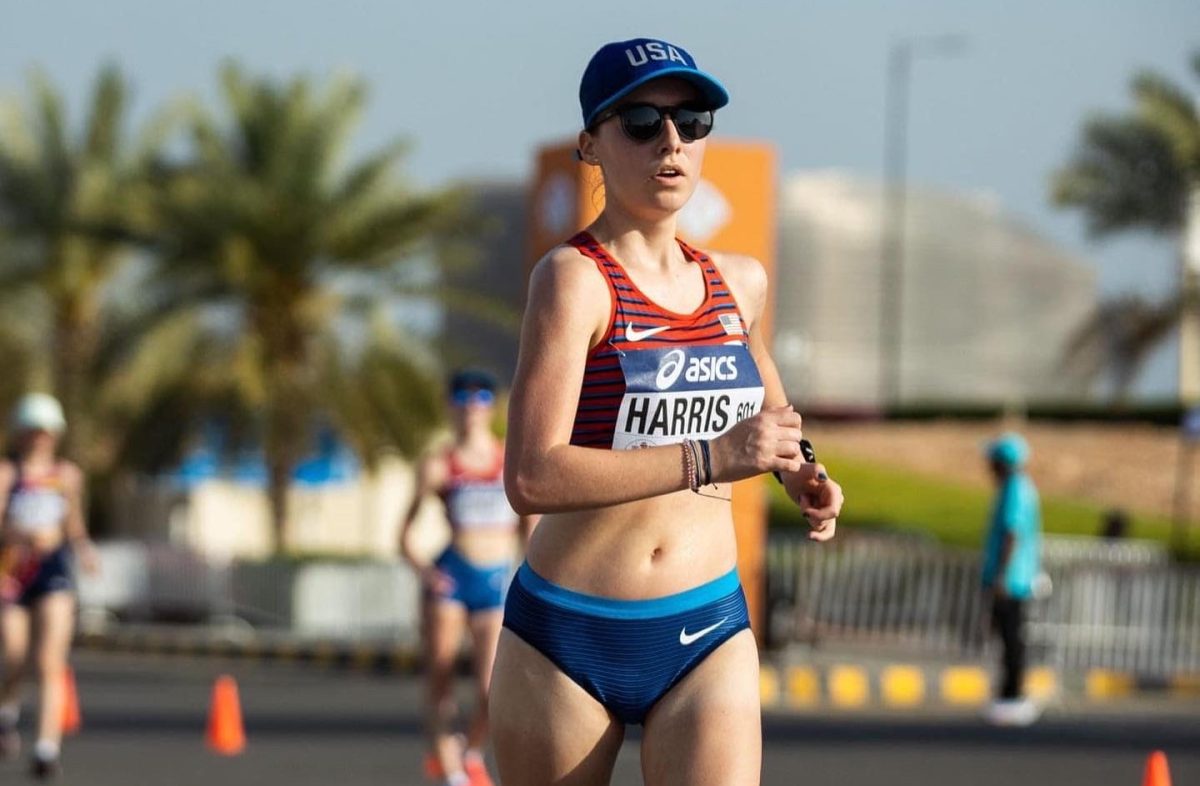“This is new for me,” junior Augustus Boettcher said. “To watch three different films break that barrier and go outside the classroom is a green flag for us. This is a signal that we can keep going and keep making stuff.”
This semester, three Vanderbilt student films, “Cupid,” “First Night” and “On the Dying Grass” have gone from campus auditoriums to the world stage, being presented at major film festivals including the National Film Festival for Talented Youth, the BFI Future Film Festival and the Beverly Hills Film Festival.
“There happened to be this really nice confluence of things last semester,” Boettcher said. “The artistic community at Vanderbilt across the board…all got together to create great films.”
I spoke with the creative minds and producers behind these films to dive into the process of raising funding, filming and attending film festivals.
“Cupid”
Born from an epic poem written by junior Theodore Perl, “Cupid” brought together over 40 students to contrast the classic Cupid tale with the many difficulties of modern relationships in the digital age. The film features a unique mix of compelling storytelling, creative set design, innovative camera work and music. Junior Benedict Ballman, one of the executive producers of “Cupid,” recounted how the film came to be.
“[Theodore Perl] said, ‘Hey I’m working on this project’ and then I was like ‘Oh I’d be interested in that,’ and then it ends up consuming the next six months of my life entirely,” Ballman said.
After hearing Perl’s idea to make a film from the poem, Ballman got on board and started working with junior Jenna Weber, senior Ford Cowan and Augustus Boettcher to begin producing the film. The team began growing rapidly, with many creative people across Vanderbilt being recruited to fill specific needs.
“It snowballed throughout the semester where we just needed a ton of hands and a ton of help and had very specific people that we knew had a lot of talent to give to this project,” Ballman said. “There’s a real feeling that it wasn’t just one individual’s poem…It was something that everyone was coming together for.”
As an executive producer, Ballman pitched the project to various Vanderbilt organizations to help with funding. The Curb Center, the Office of Experiential Learning and Immersion and Vanderbilt Student Communications helped cover the costs of production, which ended up being approximately $14,500.
“One of the main aspects of my job was getting the money and making sure it was being managed and organized well enough so that each different group, be that set, be that costume, be that music…had the support they needed financially to get the job done,” Ballman said.
After allocating funds and working with the set location, the Beech Grove Historic Venue, the “Cupid” team headed out to set up camp. The group spent the night at the venue, waking up early and spending hours building the set and filming. They had a camper for makeup and hired a local actor to play Cupid. While working with a large group was at times chaotic, it also provided a great opportunity for students to collaborate creatively and spend time together.
“We’re really big on inserting the HOD education into this project,” Ballman said. “We had sub-teams…the team leader would organize all their stuff internally and then that team lead would work directly with me and Jenna.”
After the weekend of filming and months of post-production, “Cupid” was ready to be shared with the Vanderbilt community in an on-campus screening in November 2023.
“It was a 150-person crowd,” Boettcher said. “It lit a fire under the creative campus, and we realized we can work with each other across departments and disciplines and make something outside of the classroom.”
Taking it a step further, the team submitted the film to many festivals, which operate with seasonal cycles. They were happy to hear back from the National Film Festival for Talented Youth (NFFTY), which takes place April 25 through May 5, 2024, and is the world’s largest film festival for emerging young filmmakers. As the spring and summer months continue, the team will hear back from other festivals they applied for.
“In the past two years, I did not feel like there was a very strong creative community at Vanderbilt,” Ballman said. “It was an incredible experience to meet all of those people around campus and bring them all together under one project and create a bit of a creative community…Going forward, I want to keep investing in that.”
“First Night”
Around the same time, junior Haneol (John) Lee created “First Night,” reflecting on his personal and familial experience after immigrating to the U.S. from South Korea. The film is based on Lee’s father, who once spent two hours trying to order a sandwich for his son while facing a language barrier. It depicts the sacrifices many immigrant families have to make and the daily challenges that often go unnoticed, while also bringing to light the joy found in moments of triumph, both big and small.
Coming from a low-income background, Lee worked hard throughout high school to get good grades and get into a college that would set him up for a successful job. When he came to Vanderbilt, he finally was able to focus on his passions more fully.
“Freshman year, I said ‘I’m going to do what I like’ for the first time, so I took a film class,” Lee said. “I made eight short films…They were all horrible. That was necessary, it was my practice.”
Following this, Lee had the idea for “First Night,” when he began to think more about what his parents had to go through when immigrating to the U.S.
“I interviewed my dad, and he said something quite profound,” Lee said. “‘A lot of you kids and government officials talk about big problems of immigration policies or food policies. It’s great and all, it helps us. But the moment when I felt the most vulnerable and scared was when I was trying to buy medication at Walmart.’”
Lee sought to capture another small moment in this film: when his father spent hours ordering at a sub shop. The whole film takes place in the family car and at the restaurant with a simple narrative structure.
“The whole point of it was: How can I truthfully tell what this moment would feel like visually?” Lee said. “That meant making a lot of conventional sacrifices…the film is consistent with incredibly long and awkward takes.”
In this way, it pays respect to the true feelings of the moment, with shots that replicate the alienation of not knowing a language. When it came to the production of the film, Lee was the only student involved in “First Night” and he hired everyone out. He was able to work with his previous boss from an internship at a film festival to produce the film, though this still proved a difficult endeavor.
“It is agreed that films don’t want to be made,” Lee said. “Films are one of those artistic pieces that try not to be made. So it was incredibly hard to get funding.”
In addition to having to externally fundraise through crowdfunding, Lee also faced the challenge of finding a crew and actors, being a 20-year-old leading the project. He was looking for a Korean family set to replicate his family, including a young son.
“I went to every single Korean church with my iPad and would go up to random strangers [to ask if they wanted to be in his film],” Lee said. “I got a lot of no’s.”
One family decided that they were interested, although they had no prior acting experience. Months of rehearsal prepared them for the one-day, seven-hour shoot. After an exhilarating and stressful day, Lee began work on editing the film. After post-production was complete, he sent the film to many film festivals. “First Night” premiered at the British Film Institute Future Film Festival, and Lee attended in London. Lee was also selected for the Short to Feature Lab, an elite program in Malibu led by Jim Cummings, where 10 filmmakers collaborate and learn from industry professionals to begin working on feature films.
“I’ve never felt more Hollywood,” Lee said. “The team of ‘Everything Everywhere All at Once’ came through and a bunch of Sundance and Tribeca filmmakers came…To have that experience was incredible.”
After coming back, the film made it to its first Oscar-qualifying festival, the Cleveland Film Festival, along with the UPIKE Film and Media Arts Festival. In the coming years, Lee wants to continue creating films and art.
“It’s a privilege to create but it’s also a necessity that you do it,” Lee said. “Art is a human necessity.”
“On the Dying Grass”
Branching onto another side of campus, “On the Dying Grass” was a collaboration between student filmmakers and Vanderbilt’s scientific community, led by Augustus Boettcher, Nick Grimaldi (‘23), Brendan Wendlandt (‘23) and Eddy Kwon (‘23). The filmmakers worked with Computer Science and History of Technology professors to create a timely look at how AI may be used in the film industry. The film was born when Kendra Oliver from the School of Medicine Basic Sciences gave them the green light to create a collaborative film with the scientific community.
After spending time generating ideas, they created a film with the premise of a Hollywood agent tragically losing her biggest client and close friend and then being asked to represent an AI version of that actor. The project was supported by the ArtLab Studio at the Wond’ry, the School of Medicine Basic Sciences and the AI Grand Challenge Initiative, helping facilitate a unique partnership across disciplines, schools, faculty and students. The film was finalized in June 2023 and then shot in July 2023, before going into post-production during the fall semester. This process, though involved, is typical of film production according to Boettcher.
“There’s always three movies,” Boettcher said. “There’s the first movie which is coming up with the idea and preparing to shoot it. There’s the actual movie, where we flew to New York City for six days…filming at some iconic locations: Little Island, the World Trade Center, Carnegie Hall Tower…that’s movie number two. Movie number three is assembling it in post-production.”
Boettcher spoke on the importance of the days on set, as filmmakers only have a limited time to get all of the shots they need and must roll with the punches as unexpected things happen. While it can prove stressful, the filmmakers of “On the Dying Grass” enjoyed the opportunity to generate an idea, film it at iconic locations and then share it with the community and world. On campus, this looked like showing it to a room full of doctors and undergraduate students alike. Off-campus, it entailed submitting it to film festivals. The film was selected for the Beverly Hills Film Festival and New York City Independent Film Festival.
“From a young filmmaker’s perspective, why the festivals are so valuable is that it’s an opportunity to meet other people who are in this industry,” Boettcher said. “For Beverly Hills, it is feasible that something that ends up winning an Oscar next year is also playing at that festival.”
Students get the opportunity to meet other filmmakers and share tips and tricks they’ve learned along the way. At the most basic level, acceptance into festivals is validation that what the students are creating is important and something they should continue pursuing. For the students behind this film, it is a motivation to keep creating outside the classroom that is spreading across campus.
“Other students are already making films, with several that are getting made this summer,” Boettcher said. “It’s like a multiplied effect. And so far, Vanderbilt has been whole-heartedly supporting it financially and through the support system…Their dedication to the arts has been a welcoming and surprising thing.”
The films will be made publicly available after they air at their last festival, which depends on each film and the festivals it is accepted to.











